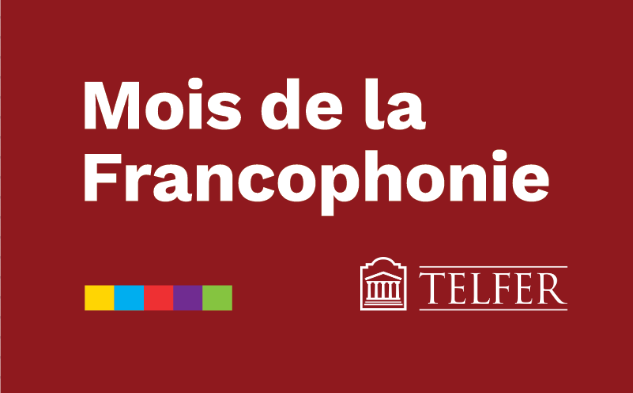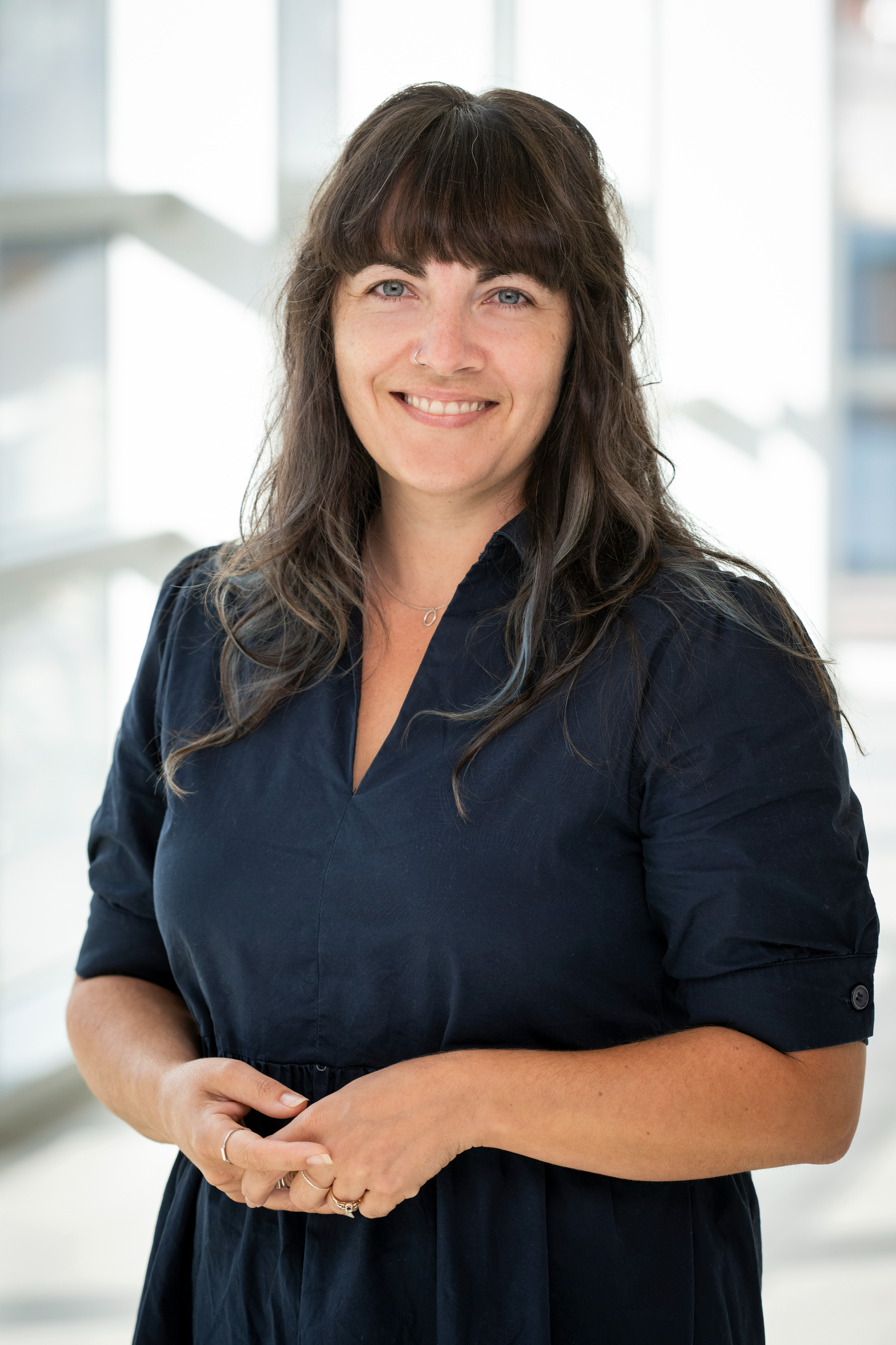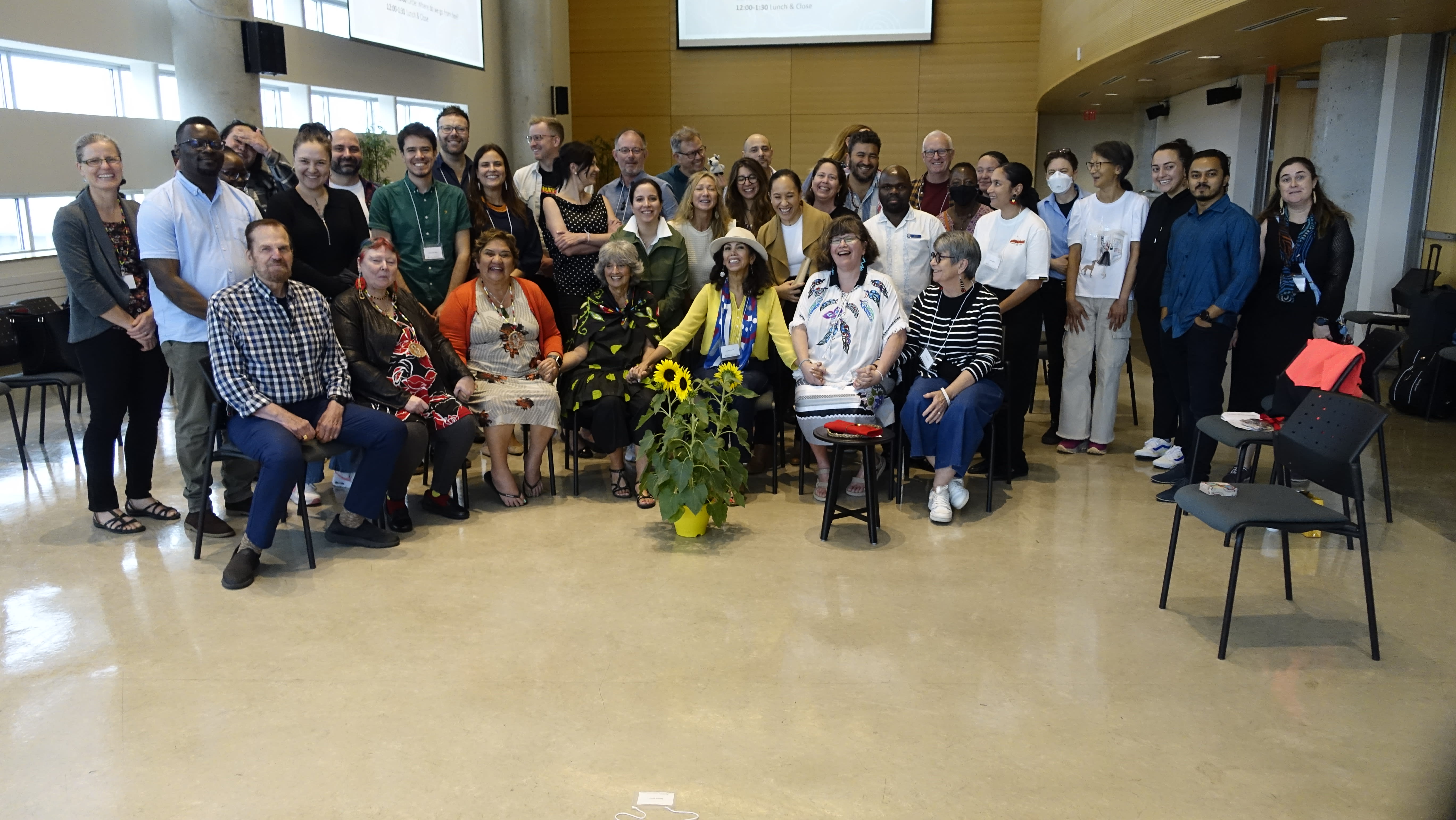It’s no secret that English is the dominant language in the world of business. However, internationally, French is the third-most used language in business settings, and is gaining ground in every sector. The Telfer School of Management, which prioritizes bilingualism in the courses it offers and boasts a slate of Francophone faculty members, is ideally positioned to capitalize on this momentum.
A bridge between two languages
Professor Adelphe Ekponon, one of many Francophone members of Telfer Nation, says the emphasis on bilingualism was one of the reasons that led him to choose to come to Telfer. “Many faces of the Francophonie are reflected at Telfer, and that’s a beautiful thing. It’s a well-rounded environment.” Professor Ekponon, who hails from Côte d’Ivoire, teaches finance and conducts research in this field. Although English is the main language of finance, Professor Ekponon is delighted that he can teach courses in the subject in French as well. He enjoys chatting in French with both his students and his colleagues.
Importance of resources in French
Despite uOttawa’s bilingual status, faculty members occasionally face challenges when teaching in French. These challenges include a dearth of resources in French, something which professors Muriel Mignerat and Eric Nelson have chosen to work to improve. Both faculty members are recipients of uOttawa's Library OER grant, and have made it their mission to create resources for courses they teach in French at Telfer.
In January 2023, with support from uOttawa’s Open Education Librarian Mélanie Brunet, Professor Mignerat published the second edition of her textbook titled "Manuel ADM1770 – Application des technologies de l'information en gestion" as an open educational resource (OER) in the eCampusOntario Open Library. This platform, which is funded by the Government of Ontario, aims to support the development of online learning and the sharing of best practices on this topic, such as free and open resources. The site currently boasts 1,424 resources in English, and only 189 in French.
Approximately 1,600 BCom students at Telfer are studying in French, which is roughly 36% of those enrolled in the program. Since ADM1770 is a mandatory course for BCom students, this segment of the student population greatly benefits from a textbook that is both free and in French.

To create this resource, Professor Mignerat started with existing material and adapted it to the Francophone context in Canada by adding relevant examples and up-to-date information on the latest technologies. Several students helped to write this open textbook by contributing group papers, for example.
For his part, Professor Nelson has almost finished writing a textbook for ADM1701, a course on management and society, which he has been teaching in French for the past three years. He hopes to publish the work as an open educational resource by April 2024.
This new resource comes in response to a pressing need: “I often find myself having to use English-language resources to teach my classes, or using French-language textbooks where only 40% of the content is relevant. In any event, I had to come up with my own material by searching for articles, book chapters, and the like. So I decided to compile all the resources I had already gathered into one textbook.”
Professor Nelson added that he sees it as a living document to which he can add new components and modules over time. To that end, he listens to his students, which allows him to adapt the course content — and by extension the textbook — to suit their needs. Professor Nelson used his Library OER grant to purchase software that allows him to record and transcribe his lessons, so that he can then revise and adapt the content to add it to the textbook.
Encouraging research in French
Everyone agrees that OERs are not only useful in teaching, but also encourage researchers to conduct their research in French. Professor Mignerat and Ms. Brunet will be holding a symposium at the 91st Acfas conference in May 2024 on how OER resources are being used in postsecondary teaching and research in Francophone settings in Canada, titled “Les ressources éducatives libres (REL) en contextes francophones canadiens : recherche et intégration aux pratiques éducatives au postsecondaire.” They hope to encourage the research community to analyze and evaluate OERs.
In Ms. Brunet’s view, pilot projects are no longer necessary because OERs have proven themselves. “The development of OERs in French aligns with the University’s goals. By making our support programs permanent, like grants and funding, we are paving the way for further research on this topic, and better evaluations of OERs, which will justify their existence.”
Professor Mignerat agrees, specifying that OERs respond to a strategic need expressed by professors. While she knows that her dean and colleagues support her work in developing OERs, Professor Mignerat argues that for this work to be recognized academically, it will need to be evaluated (to acknowledge its quality), and especially, it will need to result in published research. “It’s a paradox: you need to create resources in order to evaluate them, but you need to evaluate resources in order to demonstrate that they need to be created.”
...and making room for it
For his part, Sylvain Durocher is particularly focused on promoting bilingual research and academic debate in French. As a professor of accounting at Telfer, Durocher says that while English is dominant in his field as well, there is a real appetite for opportunities for discussion in French. With that in mind, he has jointly organized a symposium at the Acfas conference that will allow the “Francophone and Francophile research community to discuss the basics of how to improve the dissemination of research in French and escape the dominance of English in research.”
The Acfas conference is the largest multidisciplinary gathering of researchers in the Francophonie. The 91st Acfas conference will be held at the University of Ottawa from May 13 to May 17, 2024. Register today!
Why hold this symposium? “Here in Canada, there really are no forums for discussing research in French, hence the reason for proposing this symposium. We would like to see it become permanent,” said Professor Durocher. The organizers are already planning their submission for the next Acfas conference in 2025, and Professor Durocher hopes to keep up the momentum through to his retirement.
Professor Durocher’s symposium, titled “Recherche qualitative en comptabilité : un espace francophone pour poser un regard sur les (en)jeux comptables au sein des organisations et de la société,” consists of some 10 presentations by Francophone academics, including a panel discussion on creating a Francophone space in the area of qualitative accounting research. Another organizer of this symposium, Professor Yves Gendron, who teaches accounting at Laval University and is also one of the panelists, will announce that Critical Perspectives on Accounting, a journal of which he is an editor, will now be accepting articles submitted in French and will commit to peer review in French. This will make it easier for those who were taught in French to submit papers in the language in which they studied.
Everyone wins
Ultimately, all these efforts by Telfer’s Francophones and Francophiles enrich the student experience, increase the impact of its research and stimulate the use of French in business. Happy Mois de la Francophonie!











